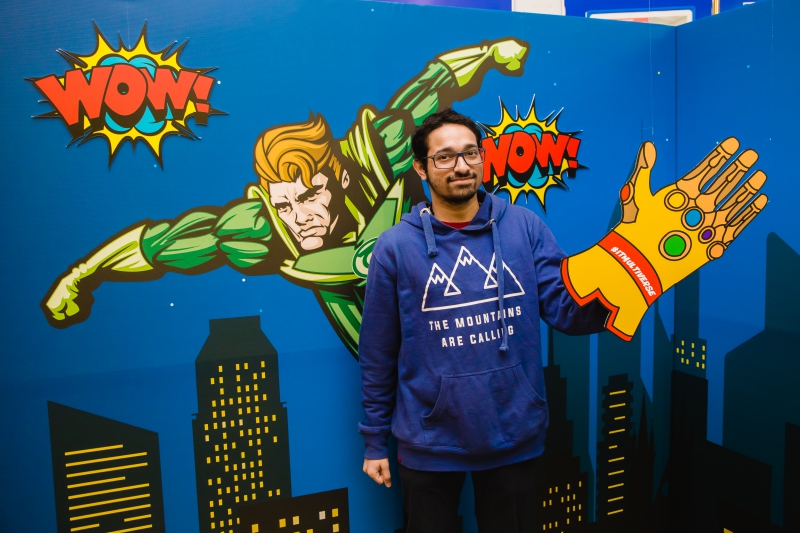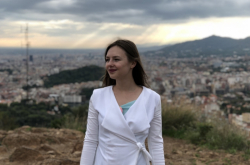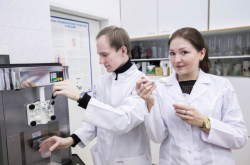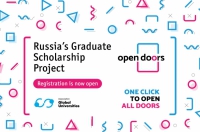Mrinal, you came to St. Petersburg from India. Where were you born and where did you get your first higher education?
I come from Mukundgarh, a city in the state of Rajasthan, which is close to the Pakistan border. This place has lots of deserted regions. I did my Bachelor’s degree at Jaipur National University in Rajasthan’s capital, where I studied biotechnology.
Why did you decide to continue your education in Russia? And why did you decide to follow a Systems Biology program?
Truth be told, I looked for a place that would match my competencies and wouldn’t be too expensive. Another thing that factored into my decision was that being a biotechnologies specialist, I didn’t have enough background in computer science, which is obligatory for everyone who wants to study at an Indian university. Indian universities explain it with the necessity to work with AI technologies, but during my Bachelor’s years, I spent more time working in the field of bioreactors and food industry. Despite the fact that interdisciplinarity is our reality and our future, I still think that one shouldn’t expect such a high level of knowledge in computer science from those applying for systems biology programs.
What was your Bachelor’s thesis about?
My thesis was dedicated to a topic that I was very interested in: systems biology. I did my Bachelor’s thesis on analyzing NGS data and creating associated databases. When I was writing it, I was doing an internship at one of India’s best independent research institutions, CSIR-IGIB in New Deli. I worked under the guidance of Dr. Vinod Scaria who is a well-known figure in the field of genomics. He is most famous for sequencing the first Indian, Sri Lankan and Malaysian genomes, as well as analyzing the wild strain of zebra’s genome. His laboratory also published the first compendium of genetic variants for South Asia (SAGE database) and the Near East (Al Mena). The institution sometimes accepts students who want to work in the field of computational biologies, and I became one of them.
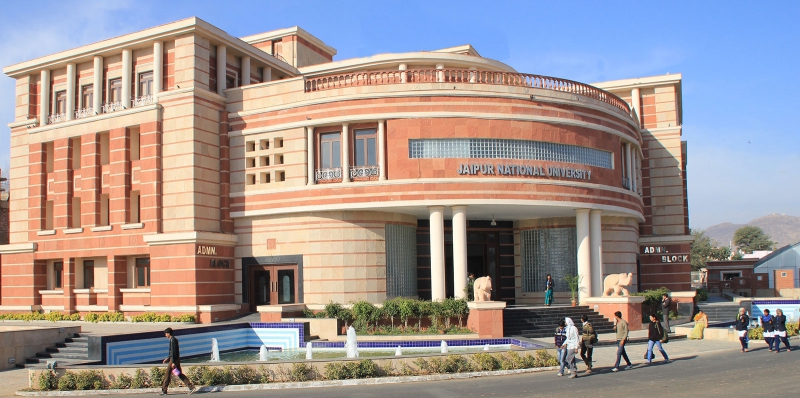
I spent half a year at Vinod Scaria’s laboratory working with mitochondrial data. I analyzed human genomes and extracted information in order to study the changes in the amount of mitochondrial DNA. I also composed a compendium for the research aimed at measuring the number of mitochondria in cells during illness in comparison with the normal condition.
I had to combine this data in some way in order to understand whether there really existed any connection between the changes in the number of mitochondria and illnesses. On the whole, a compendium is a database which is a good resource for many scientific processes. For example, when someone conducts a research and wants to check the quality of data, such a compendium can come in very handy.
Bachelor’s studies in India are slightly different from those in other countries: we study for three and a half years, and then spend the last six months doing an internship and writing a thesis. A student can do their internship at a company or research institution as I did. I decided to spend this time at a place that offered the best opportunities for professional growth in the field of biology.
You are currently following a Master’s program in systems biology and bioinformatics, where you study analysis sequencing and compiling compendiums of illnesses. How does this continue the work you started in your Bachelor’s years?
I am currently working under the guidance of PhD. in Biology Andrei Glotov along with Yury Barbitov, a biologist, geneticist and specialist in the field of biotechnology. We want to develop a similar compendium for variants in the Russian population. This is the topic of my thesis research. We will conduct a vast statistical effort aimed at identifying the most common diseases in the Russian population based on the existing information about different variants.
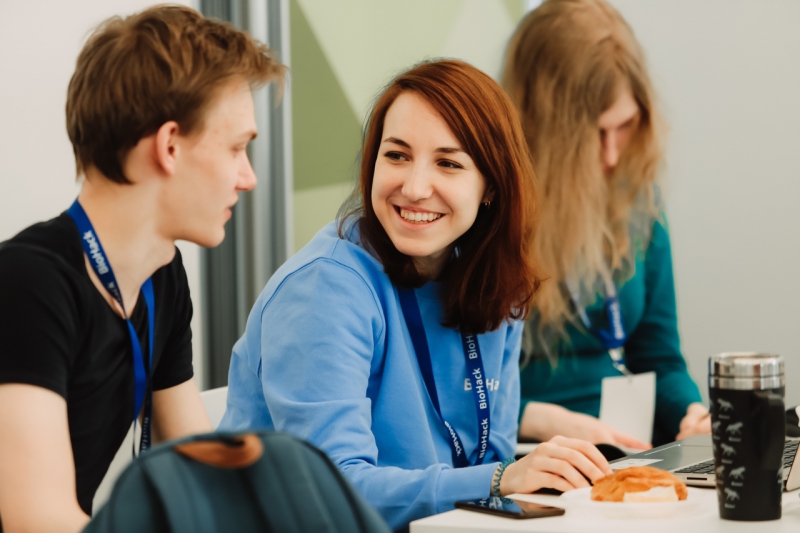
Your Master’s program is an interdisciplinary one. What do you think about the idea of synergy of scientific fields, and how does it help you?
Interdisciplinarity is our future. There was a time when we studied scientific fields in isolation from each other, but then, the challenges were different, which had to do with particular conditions like the state of sciences’ development. Now, you just can’t have anything against interdisciplinarity. I studied two fields, zoology and botanics, and I can’t really imagine how you can use them separately from each other. In my field, interdisciplinarity is becoming all the more relevant, a method that can lead to new results and discoveries. If you want to study biology, you have no choice but to do it comprehensively.
I can’t say that I focus on any particular field. When you become absorbed in some singular subject, you become a narrowly focused specialist in the associated field. As for me, I choose a program that brought together people with different backgrounds. By all means, the experience of all my peers has to do with biology, in one way or another, but our skills differ: some are better at physics, others in mathematics. For example, one of my fellow students is a virologist. What she is currently studying can be applied in researching the genome of viruses. She has a keen knowledge of both virology and of working with data. This gives great control over scientific experiments. Such things work well for all of us. Embracing interdisciplinarity is like discovering your superpowers
The main thing is that we represent various skills and use them for solving particular biological problems. By combining a multitude of approaches, we get a really strong one.
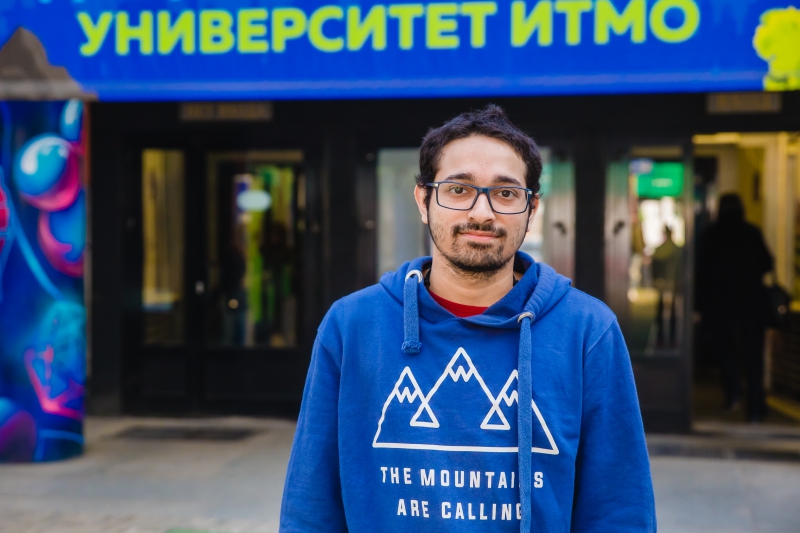
What problems do you work on?
For one, we work on sequencing problems. I wouln’t say that it a domain of biology, it has more to do with physics, but this is what the benefit of interdisciplinarity is about. As you know, Gregor Mendel was a biologist and botanist, but he is famous for his contribution to genetics; in fact, you can even say that he was its founder.
As part of our program, we get skills that can be applied in more than one task. We are trained to think like biologists and solve programming tasks in this field. We also have discrete mathematics, and study the analysis of RNA sequences.
How do you plan to apply your new skills?
I plan to apply them in neuroscience. This is what interests me most, I am interested in studying cognitive abilities. For now, my research doesn’t have anything to do with this field, but I hope to do such research for my PhD. I’m interested in many neuroscience subjects, but it is the memory and language that I want to study most. On the whole, I believe that everyone is interested in neuroscience, it is just that we don’t have enough information about it. In order to gather it, we need a clear understanding of the associated processes. The knowledge about RNA analyses that we got last month is very relevant in this regard. To put it bluntly, data, as well as the ability to interpret it correctly are the most important things that we have today.

Why is it memory and language that you are most interested in?
I would’ve liked to understand the mechanism behind memory. For example, to learn which role memory plays in decision making. There are instances when people remember the details of events that took place very long ago. I wonder how this affects decision making from a biological standpoint. I am also interested in how language is encoded in our brain. We have different thoughts and words associated with them, but do words correspond to any particular objects in our brain? The basis for this is the domain of linguistics, but it is neurolinguistics that is important for conducting research in this field. These tasks are very hardcore, but for now, I’m only at the beginning of my path, and I don’t know much.
How do you plan to continue your scientific career?
After completing a Master’s program in Russia, I will become a PhD student, though I still don’t know in what country and university. I consider France, Germany and other countries where they have laboratories that conduct neuroscience research. Two years in a Master’s program is not much, especially considering that I already passed one fourth of it.
